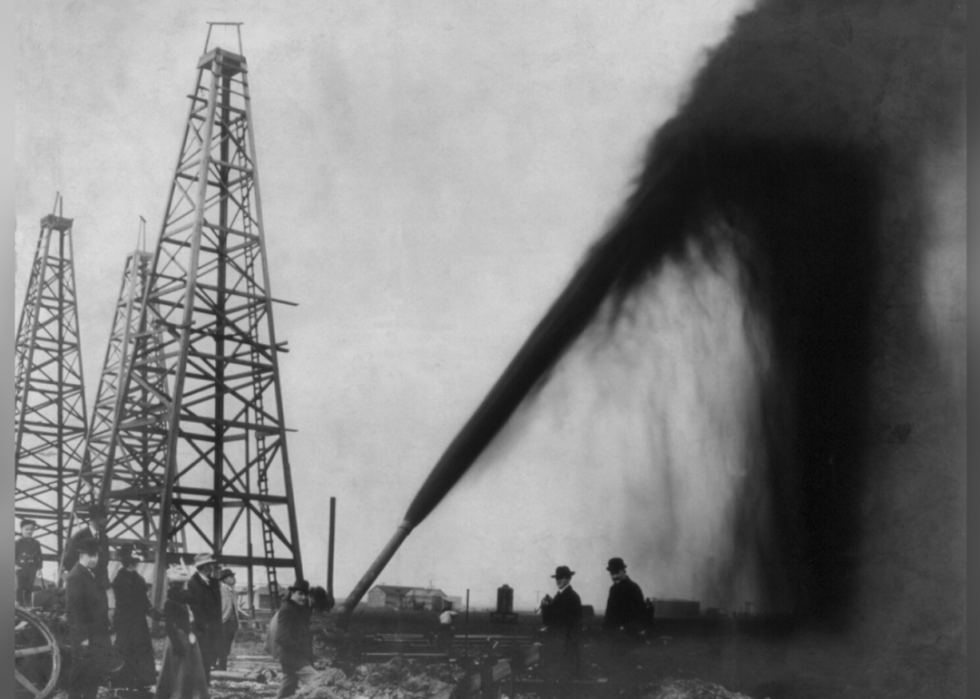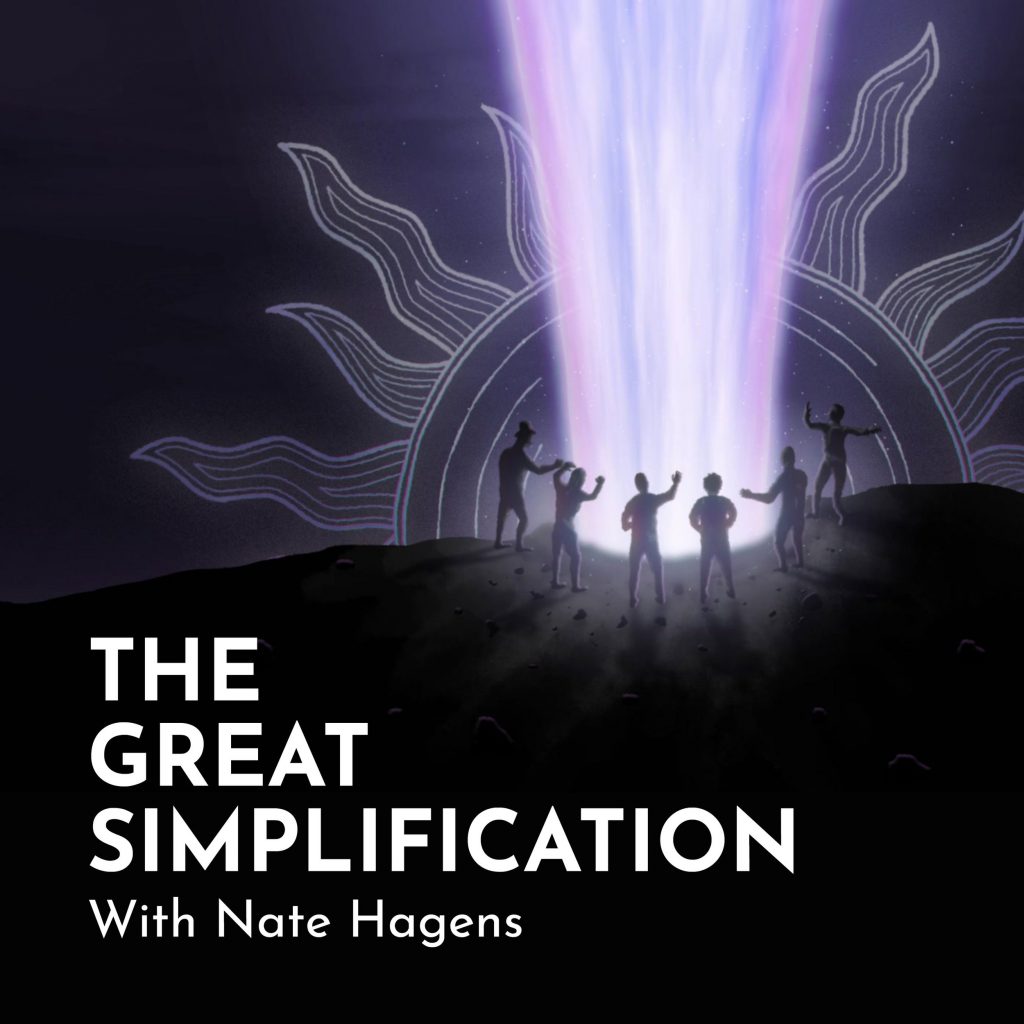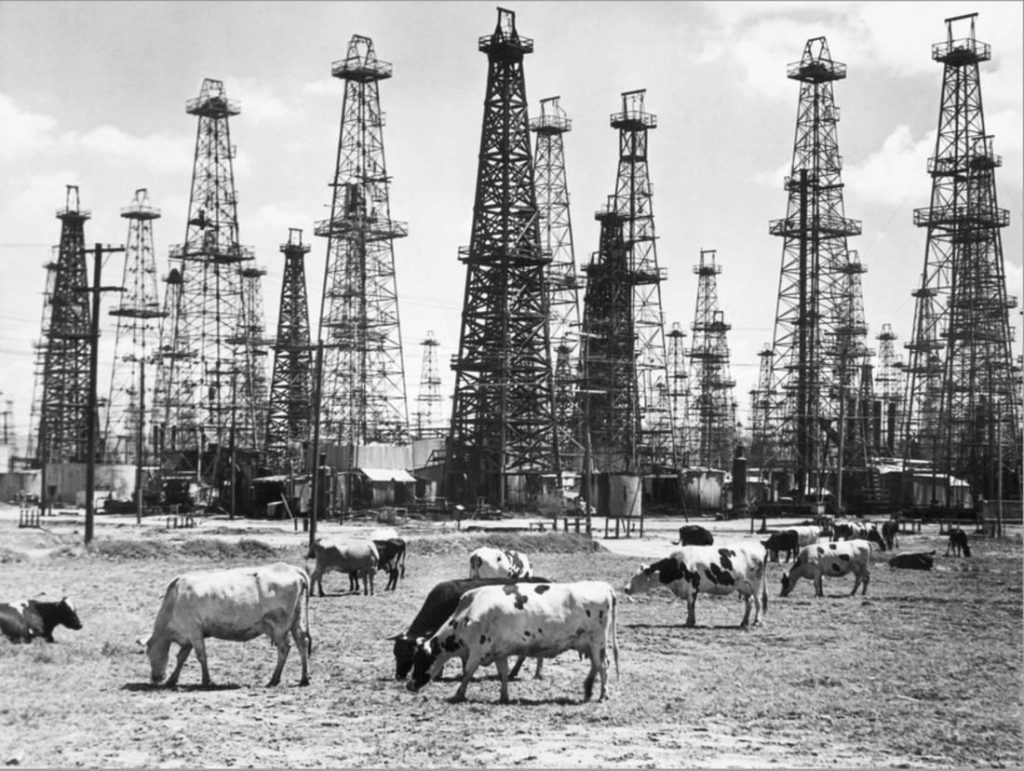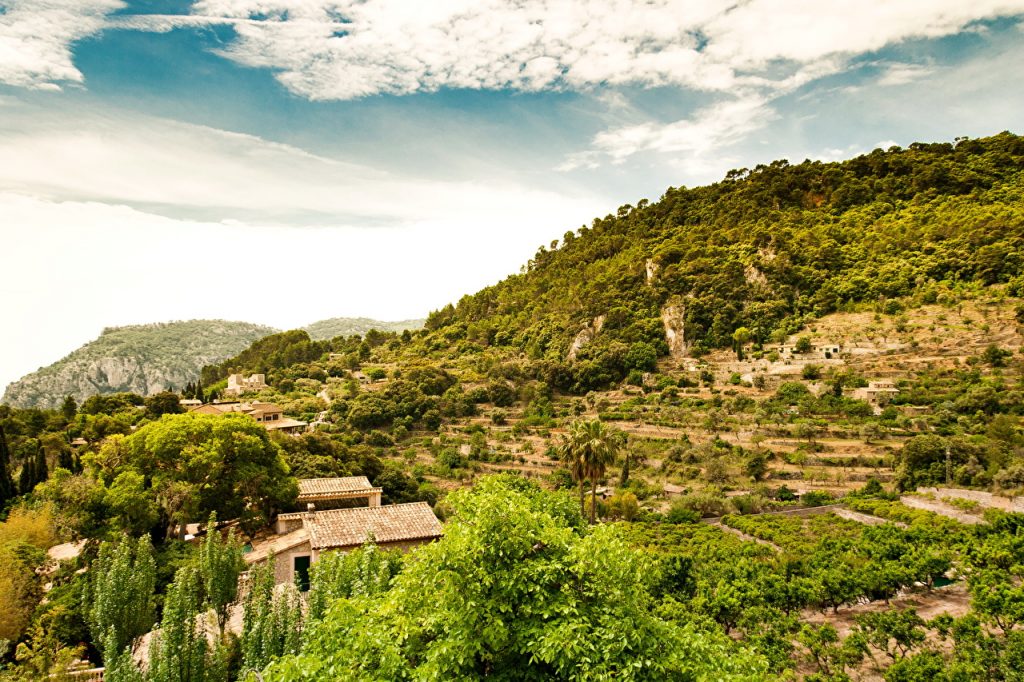The following commentary is derived from a recent episode of the Quillwood Podcast. Host and founder, Eric Garza, explores The Great Simplification with Nate Hagens and the role that energy addiction plays in our modern world. You can listen to the episode on the web and on most podcast apps.
Nate Hagens | We have just undergone a couple centuries of the greatest complexification in our species’ history, where we have combined innovation and ideas with energy and materials into technology that has massively increased the scale of the human enterprise. If you consider the number of humans on the planet, 7.9 billion, times the average material throughput—how many goods and services the average person uses—the human economy is over 1000 times bigger than it was 500 years ago. This is all on the backs of fossil energy and materials that we are extracting from the earth 10 million times faster than they were sequestered by natural systems. And our economic system is based on the idea, or the implicit reality, that these things are interest when, in reality, they are principle that we’re quickly drawing down.
During our lifetimes, we’ve been on an unparalleled—with the exception of a couple of recessions—period of constant economic growth. It’s an anomaly not only in the last 1000 years of human history, but for the last 300,000 years—all of human history. And yet we take it for granted that this is something natural, something due to human cleverness and technology, and something that will always happen. But our economic system, our institutions, and our expectations are fundamentally dependent not only on available energy, but on affordable energy at the scale that we have now.
And right now, the human enterprise uses the equivalent of 170 billion 100 watt light bulbs turned on 24/7. That’s 17 terawatts of power—85 percent or so fueled by fossil carbon and hydrocarbons, coal, oil, and natural gas. This stuff is finite, and we have extracted the best and easiest. There’s plenty left, but it’s more costly—it’s deeper, it’s lower quality, and it’s more ecologically impactful to extract. Once we reach the lower quality stuff, which will require a lot more energy and materials to extract, the societal benefits will diminish, especially for energy-intensive activities like flying, concrete production, or aluminum smelting.
With the industrial revolution, we added thousands to tens of thousands of units of fossil labor to replace one unit of what was previously human or animal labor. And we did that because it was so cheap; we just pulled it out of the ground. And that was the “cost”—not the 10 million years of geological heat and pressure it took to create.

The benefits that we get are very sensitive to the cost of energy. If energy prices double or triple, there’s a huge ripple effect in our wages, our salaries, our profits, and the cost of things.
So long story short, The Great Simplification will be the era of the 21st century where we unwind a lot of the complexity built into our system over the last century or two. It doesn’t have to be a disaster, but it’s going to mean a different sort of existence. It’s going to mean less material throughput per average human.
On average, instead of the whole pie getting bigger every year, the whole pie of stuff that we, as a nation, as a world, as a species, have access to is going to diminish. And not only that, our relationships with the natural world, our relationships with each other, and our relationships with international trade and the six-continent supply chain that we currently have are also going to change.
The name of my podcast is The Great Simplification. And I call it that for three reasons. The first reason is what I just described. We are about to transition from the greatest concentration of energy and resources ever amassed on this planet by a species into something different because we cannot continue to grow. So, it’s a simplifying of human interactions and commerce.
The second reason I call it that is because, for many people, by simplifying from this supernormal stimulus, this smorgasbord of technology and gadgets and deliverable items and fancy food at Whole Foods and other places from around the world, we probably could be happier and healthier. Because we have, as a culture, effectively turned hundreds of billions of barrels of fossil carbon into microliters of dopamine in our brains. And in doing so, we’ve become addicted to the unexpected reward of “What’s going to be my excitement today? What show am I going to watch? What am I going to order? What sort of cool technology can I play with?” We’ve lost sight of the fact that the best things in life actually are free or close to free once basic needs are met.
For many people, simplifying their lives—having less material consumption and more time in nature, more time with normal human timescale activities, and more time in social networks—could actually be a good thing.
The third reason I called my podcast The Great Simplification is because we live in a really complex and nuanced system, the human ecosystem, and I’m trying to help simplify all the complexity that is in geopolitics and energy and anthropology and neuroscience and climate change into bite-sized, mind-sized explanations that make sense.
Eric Garza | What you’re basically saying is that we learned to extract more and more of these sources of fossil carbon, coal, oil, and natural gas, and with that energy that we liberated, we built this very complex society. And because they are finite, their production goes up, and then eventually it goes down.
For example, in the case of oil, as less energy becomes available year after year, we’re invited to think about how our society writ large—the United States and the globally community—will adapt. And it is from that adaptation process of having less available energy each year that you get the idea of the undoing of that complexification, which we can frame as simplification.
Nate | The world is not binary. And there’s a lot of stories out there which presume that after growth, we’re going to collapse. Those are two binary outcomes. I think a collapse is a mathematical possibility because there’s so much complexity and risk out there with nuclear war, runaway climate change, and all these other factors. But it’s a small possibility in my book—10 percent, or something like that. It’s much more likely that we are going to come down from this extremely high exosomatic energy orgy that we’ve had the last century.
The average American—and again, I stress the word average, which leaves out the fact that a lot of people aren’t at this level—uses 100 times more energy than our bodies consume in terms of calories.
Our endosomatic footprint, how much we eat, is 3000 calories a day. But our exosomatic footprint is 220,000 calories a day. That is our share of the light in the library, the football stadium, the airlines, the buses, the hospitals, the gas stations—all of it. The average American uses 100 times more energy than our bodies need. The average European uses 50 times more. And, by the way, many countries in Europe have a higher quality of life, according to self-reported well-being, etc., than the US even though we use twice the energy. That’s one example of how a simplification does not have to be a disaster. But I think a simplification is the natural progression from when we over-consumed. We have to simplify.
We are not going to, as a culture, choose to do this. We are going to continue to kick any can possible to continue growth because constraint and tightening our belt are not things that get you elected. So as a society, we’re going to continue to kick cans until the road is full of cans. And then we’re going to be forced to consume less by some financial recalibration; or the price of things will become so high that we can’t afford them; or certain supply chains that have micro components made in the south of China or in Bangladesh won’t make it here. Those sorts of things lead to a simplification.
As individuals, however, we can choose ahead of time. We can simplify first and beat the rush. You can connect the dots that we have an economic system based on individuals, families, small businesses, corporations, and nation states collaborating toward generating monetary profits, which are linked to energy, which are linked to hydrocarbons, and that hydrocarbons are getting more costly, more diffuse, harder to extract, and, therefore, more expensive, meaning less benefits for society if you connect it all.
And we’re papering over dealing with that by issuing debt—now the United States is approaching $30 trillion in debt. The global economy is almost four-to-one debt to GDP. As an individual, if you make $50,000 a year and you owe the bank $200,000 a year, that’s not a good situation. But our entire global economic system is in that situation.
As an individual, you’re not getting the emotional signals that you’re going to have to simplify your life. Stock markets are near all-time highs, and you can order anything you want on Amazon and receive it the next day. But if you think about these things and connect the dots, you can make decisions in your life not only to save the planet, but to make yourself more personally resilient and flexible as events unfold in coming decades. At least that’s what I tell my students.
Eric | You use this term in your podcast and a lot of the other materials you put out there: energy blind. And I really have come to appreciate that as a term. I actually used it yesterday. I’m teaching a course on climate adaptation, and we spent a day talking a little bit about energy and fossil fuel depletion as a way of framing the rest of our semester. And I love showing this really short video of this Olympic cyclist on this exercise bike…
Nate | I show the same one.
Eric | I let them watch the first few seconds of it and ask, “Okay, how many people think that this monstrous man is actually going to be able to generate enough power for a long enough period of time on this exercise bike to toast a piece of bread?” Some of the students will raise their hand and say, “Yes, I think he can do it.” And then we watch the rest of the film, and then we can talk about that.
 Nate | I’ve made four animated videos describing The Great Simplification. The first one is called Energy Blind. In it, I point out that the barrel of oil which cost $60 or $70 equals four and a half years of our work. And anyone on the internet doesn’t need to take my word for that. You can quickly find out that a barrel of oil has 5.7 million British thermal units of energy in it. That translates to 1760 kilowatt hours of work whether you are either dragging a deer carcass, pushing wheelbarrows of mulch, or pounding nails to build a barn. Whatever you do, you generate around six-tenths of one watt of energy per nine-hour workday. Simple math shows that a barrel of oil actually does 11 years of our work. But humans are more efficient than oil. We can direct our muscle output with less waste; when we handicap it back down, it works out to four and a half years of labor per barrel of oil.
Nate | I’ve made four animated videos describing The Great Simplification. The first one is called Energy Blind. In it, I point out that the barrel of oil which cost $60 or $70 equals four and a half years of our work. And anyone on the internet doesn’t need to take my word for that. You can quickly find out that a barrel of oil has 5.7 million British thermal units of energy in it. That translates to 1760 kilowatt hours of work whether you are either dragging a deer carcass, pushing wheelbarrows of mulch, or pounding nails to build a barn. Whatever you do, you generate around six-tenths of one watt of energy per nine-hour workday. Simple math shows that a barrel of oil actually does 11 years of our work. But humans are more efficient than oil. We can direct our muscle output with less waste; when we handicap it back down, it works out to four and a half years of labor per barrel of oil.
Now let’s think about that. There are around 5 billion human beings in the labor force, excluding young people and old people. We use 100 billion barrels of oil, coal, and natural gas. If we translate the BTU content of coal and natural gas into oil per year, 100 billion times four and a half years per, we have effectively the equivalent of 500 billion human workers, unseen, that we’ve extracted from the ground, that are adding to our economic output in combination with the work of 5 billion real humans.
The heavy equipment, the cranes, and the airplanes—all those things would not be possible with just human labor and technology. And we are blind to that fact, first of all, because it’s always been abundant and relatively cheap in our lifetimes. Second, we are blind because economic textbooks and economists are modern shaman—they are telling stories about how things work, but they have treated energy completely wrong.
They’re not bad people, and they’re not dumb; they just were following a unique period in human experience—this massive growth that we’ve had the last 80 or 90 years and explaining it the wrong way. So an economist explains our riches by labor and capital and some productivity factor. To an economist, $100 worth of energy is exactly the same as $100 worth of lawn gear, or a bike tire, or a coffee pot, or anything else worth $100. Yet energy in our economic system is not replaceable by anything other than other forms of energy. And even then it has to be the same energy quality. We can’t run a bunker ship across the ocean on electricity; it needs heavy bunker fuel.
So yes, we swim in a sea of cheap and affordable energy, like a fish swims in water. And fish don’t know that they’re swimming in water until they’re suddenly out of water. I think the biggest fundamental misconception of our era is that we dramatically underpay for the most important input to our economies. We don’t pay for the cost of creation, which is tens of millions of years of geological heat and pressure; nor do we pay for the externalities and the pollution, which is the waste heat going into the oceans, the biosphere, and all the crazy stuff we do with the energy that’s impacting other people, other species and ecosystems, and other generations. So, we as a culture are fundamentally energy blind.

I think we have three grand challenges in the coming decades. The first one is to change the supply side to better align prices on things that are nonrenewable, which would spur appropriate innovation for technology that fits a resource-constrained future and lead to conservation. What sort of technology would be appropriate for the coming century? It’s not rocket ships that take people to Mars. It’s going to be miniaturization, efficient farm tools, and lots of other things that are conducive with a Great Simplification future where we’re going to have less high-concentrated, low-entropy energy and resources.
The second category is the demand side: “What did we use all this energy for? Does it really lead to happy, healthy people that have high levels of well-being?” Our cultural goal so far has been GDP. We never really intended to have GDP as a measure of our success; it just kind of emerged 80 years ago to track our consumption. It’s kind of de facto been a measure of our success, but it really doesn’t correlate with well-being. We’re going to have to change how we measure our success.
The third category is a change in our value systems, both horizontally and vertically, to include other species and ecosystems; other generations; and other people beyond our immediate circle. This will take a long time. It’s the tragedy of the commons and a collective action problem. Doing what’s right for yourself often is not what’s best for the whole system. Can we have some sort of a cultural change where people self-organize around a different objective than GDP?
I don’t know the answer to that. It’s been very easy in this era of fossil abundance; pretty much all boats were buoyed by a rising tide, which was very cheap and abundant fossil energy. As that reverts, what will be our goals? What will be our collective contribution?
Successful cultures in the past that were long-lasting tended to recognize the natural world and what it provided as something important, almost sacred, as seen in the deities or the animist religion. People had a feeling of respect for nature around them that we’ve totally lost. Most of us.
I really think one of the silver linings of The Great Simplification is how our world will become much larger again, more social again, and probably more local again.
One of the arrows in the quiver of “simplifying first and beat the rush” is to meet more people where you live. Knock on your neighbor’s door and just have conversations with them. Left, right, rich, poor, black, white, rural, urban—we have to get to know people as individuals instead of getting to know Netflix characters and Amazon delivery people.
And it’s hard. It’s easy to just finish a day at work and have a pizza and watch “Homeland” on Netflix. But the social aspect, the social necessity of community, has been suppressed by a couple generations of cheap energy. Growing up, we would play kick the can and run around the neighborhood with kids, and we would have a lot of social interactions. Now there’s too many higher supernormal stimuli options for people to do that. They don’t do things like that anymore. So, as adults, it behooves us to form social relationships with people that live close to us. You know why? Because it’s healthy. And because we’re gonna need it.







You’ve confused energy and power multiple times, and your units are all over the place. Watts per hours is not a quantity of anything. Please take a course in basic dimensional analysis before discussing energy policy again.